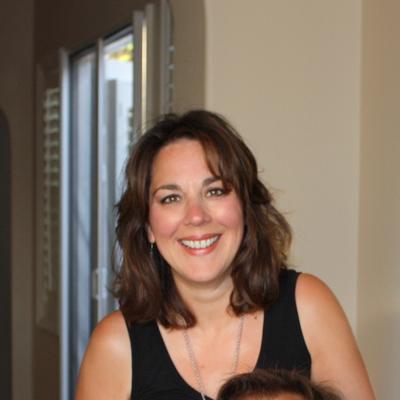
Lois Wolgemuth has worked as a Child Life Specialist at Stollery Children’s Hospital in Edmonton, Alberta, for 31 years, but discovered her passion for helping hospitalized children at age 12. She’s truly devoted her life to the Child Life profession and shares stories and insights here:
Please share a little about your background and how you became a Child Life Specialist.
One Saturday when I was about 12 and bored at home I started thinking about how bored kids in the hospital must be. I called up my friend and asked her if she wanted to go to our local hospital and play with the kids there. We loaded up a couple of backpacks with crayons, books and puzzles, hopped on the bus and got down to the hospital. We found our way to the children’s ward and hung out with the kids and actually went back a couple of times before we were discovered and sent to the volunteer office. They told us we were far too young. They told us to come back when we were 16. I knew at that time I would be back.
I got an internship at my local children’s hospital, started working there right out of college, and have been privileged to work at the Stollery Children’s hospital for 31 years now.
Was there a defining or “a-ha” moment in your career you could share?
I think of two examples immediately. On my first day of training at my first job, I went into the intensive care unit to meet one of my first patients. He was in a coma and had been in a terrible accident. He didn’t even look like a little boy. I remember looking down at his little hands with dirt under the fingernails and just imagining him running and playing and being just like he would’ve been before his accident. It seemed that all the tubes and medical equipment faded away and all I could see was this little boy and that’s all I focused on, just helping him get back to who he was.
The other moment I remember is walking into the room of a little 4-year-old who had recently been diagnosed with cancer. He was so angry about being cooped up in the hospital and not understanding what was happening to him that he picked up a toy car and threw it at my head as hard as he could yelling “I hate you, go away!” I left, but kept trying. It took me days before he would let me stay even for a few minutes. Soon, he was letting the doctors and nurses in, too. Giving him the control and power he needed helped him gain trust in our relationship and all the other helpers on his team.
What’s one thing you would like to see change in how healthcare is administered to children?
I’d say mandatory education and training in our approach to children. There needs to be more awareness of the long-term effects of hospitalization, illness and injury. When supported well, kids will get stronger but when not, the negative impact can be life-long. There are simple ways to help and if caregivers would try these things the outcomes would be better. For example, using comfort positions instead of holding kids down for procedures. There are great resources out there.
What can parents do to help their own children have better healthcare experiences?
Parents should remember that they are the expert on their child. They should listen to the advice of professionals, but always make it fit for you and your child. Feel strong to advocate for your child’s needs. I hear too many parents say they regret not speaking up because they felt intimidated by the system. If you don’t have the strength in the moment find someone who can help you. The hospital can be a complex place, but at the end of the day, every professional is there to help. Be honest, give them information and ask them for ideas. They have the best ideas! Use the resources that are offered, ask to see a child life specialist.
